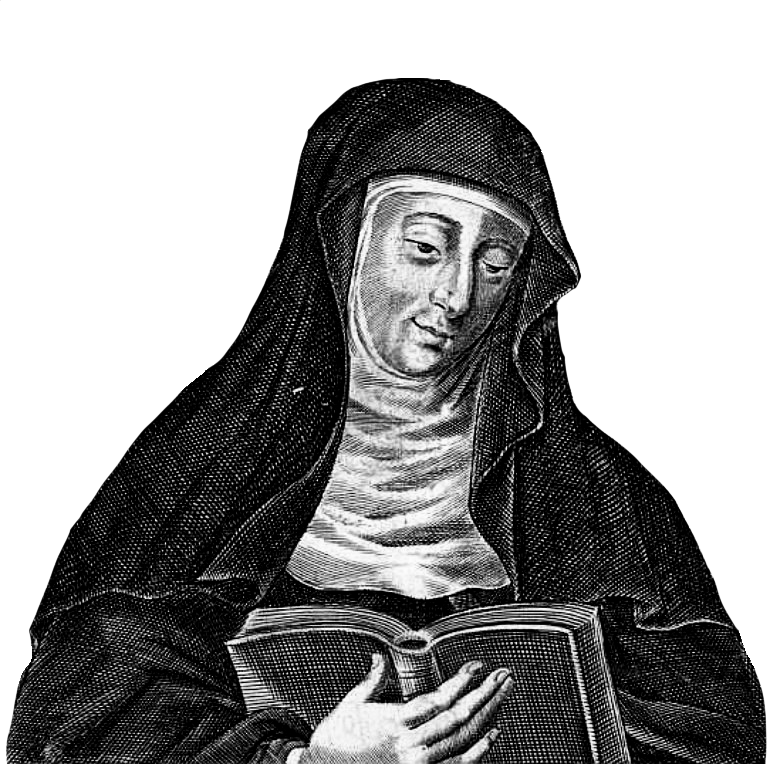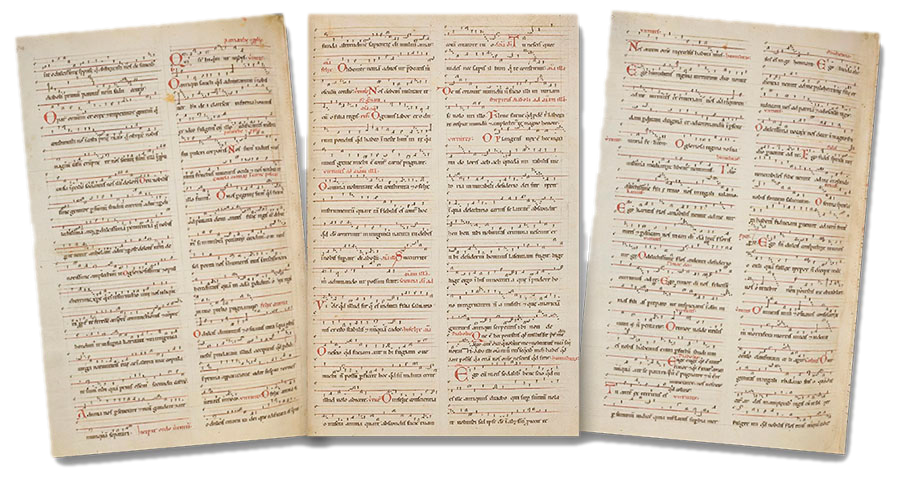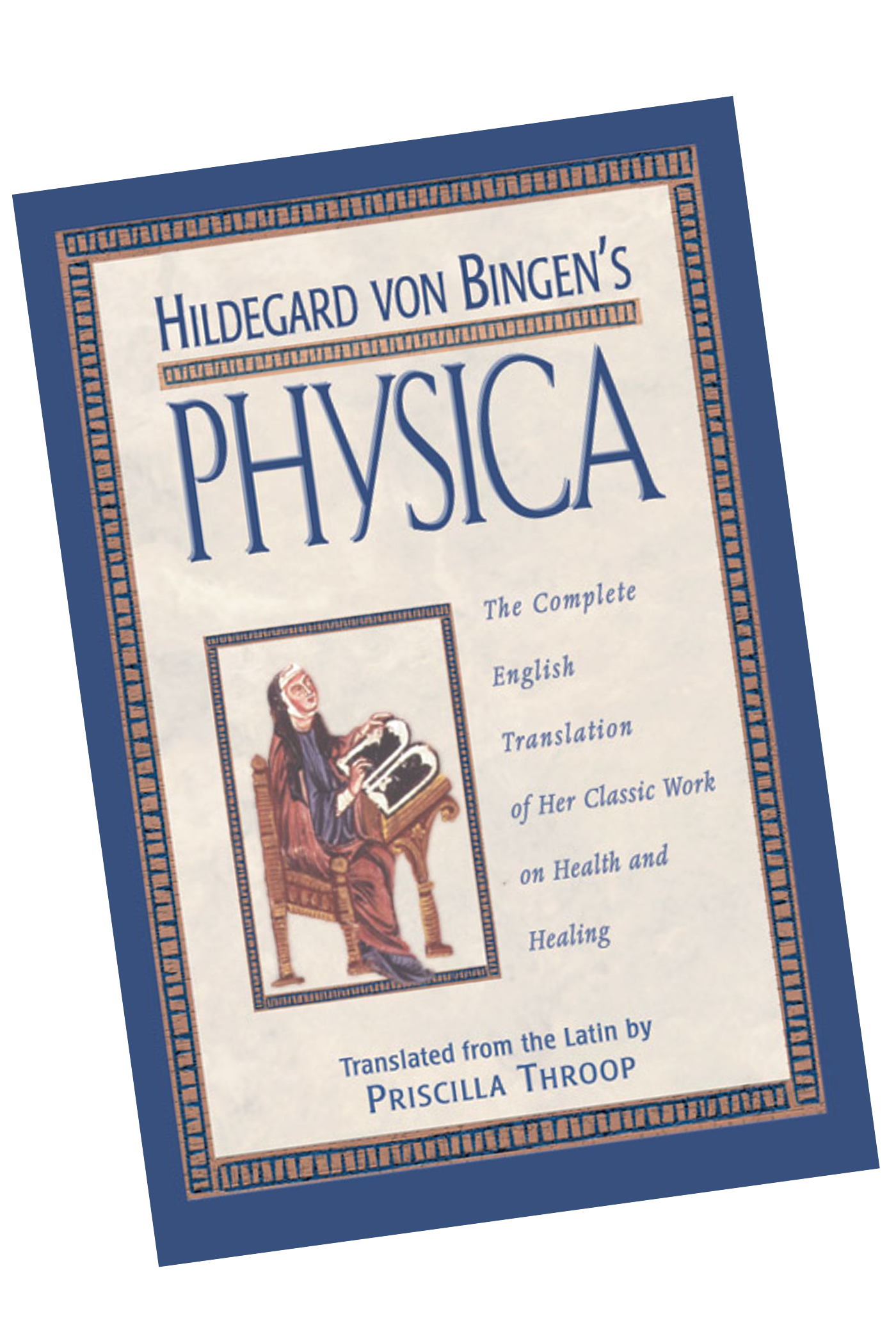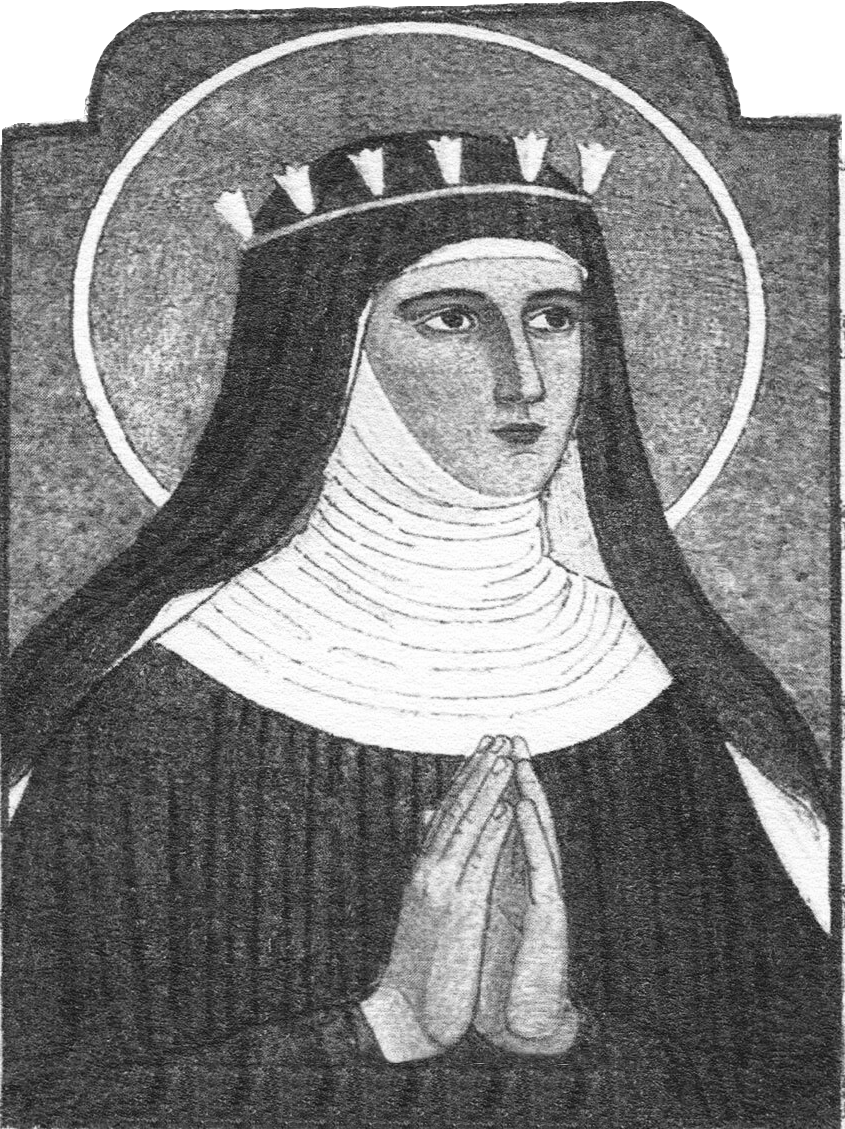Hildegard of Bingen
Scientist, feminist, musician, saint
a presentation by Teya Llanes
Scroll down to continue
This is a desktop and audio experience.
Hildegard of Bingen was a remarkable woman who defied the societal norms of her time. As a medieval abbess, she was a pioneer in many fields and an early advocate for women's rights.
This website takes you on a journey through the different aspects of her life, from her early years to her lasting legacy.

Hildegard was born into a family of nobility and was expected to marry and become a housewife. However, she refused to conform to this traditional role and instead became a nun at the age of 15.
As an abbess, she challenged the male-dominated power structures of the Church and advocated for greater autonomy and respect for women.
Hildegard's visionary experiences were deeply intertwined with her feminism. She believed that women were just as capable of spiritual leadership as men and actively promoted the idea of feminine divinity. Her visions often featured powerful female figures, such as the figure of "Sapientia" (Wisdom), who she saw as a personification of the feminine divine.
She is Divine Wisdom. She watches over all people and all things in heaven and on earth, being of such radiance and brightness that, for the measureless splendor that shines in Her, you cannot gaze on Her face or on the garments She wears.
Writings on the Spirit as Sapientia

Hildegard's visionary experiences were also expressed in her art. creating illuminations and miniatures to accompany her manuscripts. Her artwork often depicted her visions and the natural world, including flora and fauna. Her style was intricate and colorful, with delicate details and vivid hues. Today, her artwork continues to be admired for its beauty and unique insight into the mind of this extraordinary medieval visionary.
Beyond her writing and art, she was also a prolific composer. She composed an extensive collection of sacred music, including hymns, sequences, and antiphons, which she considered a vital part of her spiritual work. Her compositions were characterized by their unique and complex melodies, beautiful harmonies, and poetic lyrics that often reflected her spiritual experiences and visions.
Throughout this webpage, you've been listen to Ordo Virtutum. It is a morality play, and is in fact, the earliest known surviving musical drama that is not attached to a liturgy.

Hildegard of Bingen had a strong interest in natural philosophy and medicine. She believed that the human body and the natural world were deeply interconnected, and that illness was caused by a disruption of this balance. She wrote extensively on the properties of various plants and herbs, and how they could be used to heal the body.
One of her most famous works is the "Physica", a comprehensive encyclopedia of natural medicine and healing. In this work, she details the medicinal properties of over 230 plants and their uses, as well as discussing topics such as the four humors, the elements, and the body's natural healing processes.

Overall, Hildegard's work in natural philosophy and medicine was groundbreaking for its time, and her ideas continue to be studied and respected to this day.
Hildegard's legacy as a feminist icon continues to inspire women today. She challenged the patriarchal norms of her time and paved the way for future generations of women to pursue their passions and assert their rights. Her visionary experiences, music, poetry, and writings continue to inspire feminists and scholars around the world.

Hildegard of Bingen Go to top of page